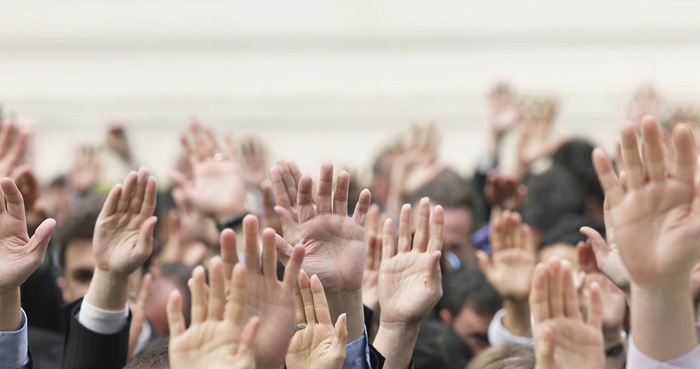ANDRÉS VELASCO
Liberal democracy is under siege. Populists of the right and left are not only lashing out at globalization or stagnating middle-class incomes; they are calling into question the legitimacy of the institutions of liberal democracy and of the political elites who manage those institutions.
It’s facile to blame the politics of post-truth practiced by populists. Lies and exaggerations would not work if current democratic practice were without problems. We must re-examine and, if possible, redress what the Italian democratic theorist Norberto Bobbio called the “broken promises of democracy.”
Anyone who has ever campaigned for office has heard voters’ familiar refrain: “We only see you politicians at election time.” Politicians seem distant and untrustworthy, citizens tell pollsters. Populists exploit that gap.
Modern democracy is representative. When elected representatives spend more time in Parliament than they do interacting with citizens, they are not neglecting their duties; they are doing their job. But the rhetoric of modern democracy claims otherwise: it emphasizes closeness to voters and their concerns. When the contrast with reality is too glaring, political leaders’ credibility suffers.
In democratic systems, politicians are agents acting on a mandate from the principals (the voters). And, as in economics, democracies’ principal-agent problem is a problem because the principal may not be able to distinguish capable agents from inept ones. And agents may have interests of their own that clash with the principal’s. As a result, citizens have plenty of reasons not to trust politicians.
Democracies endeavor to ensure by institutional means that the interests of politicians and voters are aligned. In Britain, the constituencies that elect members of Parliament are relatively small, and in the United States, members of the House of Representatives must seek reelection every two years. But these solutions are not without their own problems, including parochialism and the risk that the frequency of elections will make politicians beholden not to voters, but to the special interests that finance their campaigns.
Democratic politicians also try to persuade voters that their own interests are aligned with those of the electorate. Such efforts can be healthy, as when officials disclose the sources of their campaign funds and possible conflicts of interest. But they can also be unhealthy, as when candidates pander to voters’ fears and resentments.
Indeed, two fascinating recent papers by researchers at Harvard and MIT explain the emergence of populism in terms of politicians’ efforts to signal to voters that they are not beholden to powerful interests. Thus, although populist policies reduce overall economic welfare, rational voters choose them because they are the price of distinguishing between different types of politicians. As one of the papers puts it: “once leaders are not necessarily honest, it may be worth hiring those that are incompetent.”
Bobbio emphasizes that lack of trust in democratic politicians also arises from two additional difficulties. One is that modern societies are pluralistic, with many interests vying to be represented; there is no general will for a politician to represent. The other is that in a representative democracy there is no binding mandate for the elected politician to act in a certain way. Once she is elected, it is up to her to decide what the good of society is and which policies will advance it.
The potential for conflict is obvious. Even in the unlikely event that the interests a politician represents do not clash with one another, there will be no easy agreement about the best policies. Worse, an able and honest politician may indeed choose the best policies; but, in an environment of imperfect information, she may be unable to persuade voters that she did the right thing.
Suppose that the goal is to create jobs, and that the politician chooses the best policy to achieve that goal. Then, an external shock causes employment to fall. Voters can never be sure of what the correct policy was, but they suspect the politician of exaggerating the size of the shock to explain away lost jobs. All voters know is that they cannot get a job when they want one, and they blame the politician for this.
As societies become more complex and the difficulty of evaluating and choosing policies grows, so will the potential for this kind of tension. Technocrats endowed with the knowledge needed to make complex policy decisions will rise in social importance but fall in public esteem. Recall former UK justice minister Michael Gove’s remark in the midst of the Brexit debate: “people in this country have had enough of experts.” Or, as Bobbio puts it, “technocracy and democracy are antithetical: if the expert is the protagonist of industrial society, this rules out a central role for ordinary citizens.”
Add one final complicating factor: technology vastly increases the speed at which citizens transmit multiple demands. A town’s mayor will know almost instantly from Twitter and Facebook if rubbish is not collected from a street corner. And yet modern checks and balances slow down any response. Suppose the mayor wants to institute a new rubbish collection and disposal system. Detailed environmental impact assessments and lengthy citizen consultations will be required. In the years that it will take for the new system to be up and running, rubbish will occasionally go uncollected, sharpening – almost by the day – the potential for conflict between what citizens expect and what democracy can deliver.
Perhaps the fault lies not only with the current practice of democracy, but also with the expectations raised by some of democracy’s advocates. Democracy’s promises have indeed been broken. “But,” Bobbio asks, “were they promises which really could have been fulfilled? I would say no.”
The old Churchillian dictum may apply here: democracy is the worst system of government except for all the others. Under modern representative democracy, people enjoy more personal freedom and more material prosperity than at any other time in human history. We are closer than ever to fulfilling the values of liberty and dignity for all. Are those not sufficiently powerful advertisements for liberal democracy?







Comments